Top 10 Akbar Facts, The Great Mughal Emperor
Jalal-ud-Din Muhammad Akbar, popularly known as Akbar, perhaps, was the greatest Mughal Emperor to have ruled over India for a good period of more than half a century. He is credited to have to have contributed the most in establishing the Mughal Empire in India. Akbar not only established the Mughal Empire in India but also created a legacy in front of his successors through his statesmanship to be followed for all the years to come. He also contributed significantly to the Indian political thought through his model of revenue collection and administration. Akbar’s childhood, if described geographically, was no less than a rugged terrain. Born to Humayun, the second Mughal emperor and Hamida Banu Begum on 14th October, 1542 in erstwhile Sindh, now in Pakistan, Akbar didn’t experienced the child hood of a royal prince. At the time of his birth, his parents were in exile; therefore he was brought up by his uncle, Bayram Khan while his parents were in exile in the erstwhile Persia. Although Humayun managed to regain his kingdom, he did not live long to hold his kingdom. Thus, Akbar ascended to the throne at tender age of 13. No one thought, at that point of time, that he could what he did but for Akbar, life had never been comfortable. In his initial years as the king, he learned the ropes of governance under the tutelage of his uncle, Bayram Khan but soon he realised that his uncle’s ideology was not accommodative of his thoughts. Hence, he asked to proceed for hajj to Mecca and he took the control of the entire administration into his own hands. Akbar has attracted more love than loathing from historians but it can be agreed by all that he was the greatest Mughal king of India. So, here are some interesting facts about the life and times of Akbar.
10. Akbar- the Polemic
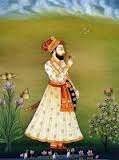
It is widely known that unlike his processors and successors, Akbar was tolerant towards all religions. It is less known that in 1563, Akbar was the king who repealed the law to collect tax from Hindu pilgrims if they visited their holy places. He had a liberal attitude towards all religions. This liberal attitude also helped him a lot in the expansion of his territory. Later, he went on lay the foundation of a new religion- Din-e-Illahi. Although Din-e-Illahi was not a religion in the true sense of the term since it didn’t have any holy-book or formal base. He founded this religion to create a unified social order which could transcend the difference based on religion. Din-e-Illahi was based on the basic principles of the major religions such a Hinduism, Islam and Parsi faith. Though his religion failed and hence, had to be abolished soon. If Akbar could have succeeded in propagating his religion, he could have created a unified social order which could endure differences based on religion.
9. Akbar-the Expansionist
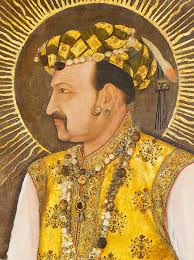
After Akbar had established the Mughal Empire in the northern India, he commenced the expansion of his territorial boundary to the southern part of India. As a result, such was the might of his empire that it stretched from Sindh in the western part of India to Bengal in the eastern part of India and from present day Afghanistan to the Godavari basin in south. His tolerant and liberal attitude towards other faiths also helped him a great deal in the expansion of his territory.
8. Akbar- the Architect
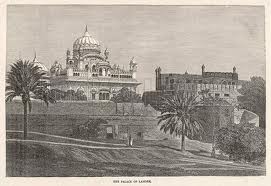
Akbar, apart from being an able administrator and founder of a religion, was also fond of great architectural structures. During his reign, he built many great architectural masterpieces and this also became a legacy for the Mughal rulers. It is evident from the fact that his successors Jahangir and Shah Jahan went on to build many architectural masterpieces. On his watch, Akbar made many historical monuments like Agra Fort, Fatehpur Sikri, Buland Darwaza, and Lahore Palace etc.
7. Akbar’s trustable- the Navratanas
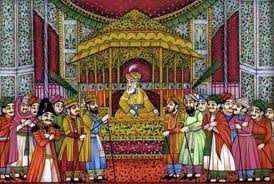
Akbar was a great patron of art and culture. Hence, his court was home to many extraordinary talents from the field of arts and culture. Among his trustable, he had a special category of men called as the Navratanas or the nine gems. Each of these nine gems was genius in his own right. The most notable among them was Birbal, whose is well known for his wit. Another was Tansen, who was a singer. It is said that he could bring the clouds to rain with his songs. Abul Fazl was the chief advisor to Akbar. He also went on to write Akbar’s biography which is titled-‘Ain-i-Akbari’. Raja Todar Mal was another trustable of Akbar who used to be the finance minister of Akbar. Raja Man Singh served as the General in Akbar’s court and he used to assist Akbar in administration of the kingdom.
6. Akbar- the Intellectual
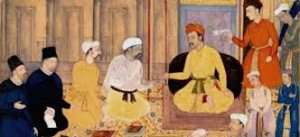
Having spent most of his childhood in exile and also being dyslexic, Akbar could read and write but he had a flair for learning and art. He always used to remain in the company of intellectuals and religious leaders. It was because of this only that his court was graced by the presence of the most extraordinary talented individuals of all the times. To keep himself ahead of times, he continuously involved himself in the process of knowledge acquisition through whatever means.
5. Akbar-the Warrior
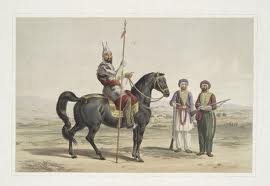
To accomplish his expansionist ideas, Akbar didn’t only have a liberal attitude that could win the heart of people but he also had all the attributes of a warrior. In the second battle of Panipat, Hemu suffered a huge defeat at the hands of Akbar. He was also victorious in the Battle of Talikota fought in 1576. Akbar also defeated Rana Pratap of Chittod in a battle. Since his childhood, Akbar grew to be fearless.
4. Akbar-the Hunter

Another attribute of the persona of Akbar was his fearlessness due to which he became a hunter. His courage made hunting a passion for him and his derived great pleasure from hunting. Initially, he was accompanied by his trustable when he went for hunting but later he started going alone for hunting. He also liked to keep wild animals as pets. He relished hunting lions, cheetahs, black-bucks, tigers and also elephants sometimes.
3. Akbar- the Administrator
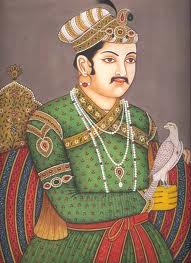
Akbar’s administrative acumen was well displayed by his Mansabdari System. This was a system of administration introduced by Akbar to divide the whole territory into small regions and appoint Mansabars to control over the small regions. This system is the model for the present day federal system of governance which is practiced in many countries throughout the world. He was an able administrator in the sense that he could not only retain the huge territory he had but was also able to administer it.
2. Akbar- the Statesman
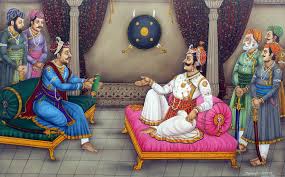
Akbar was more than an able administrator in the sense that he could foresee that the path for future of his kingdom lied in creating a social order that could endure the differences of caste, creed, culture and religion. He served as a people’s king who had mastered the art of governing a nation-state well before the concept of nation-state came into being. It is because of this rule is known as the ‘Golden period of Mughal Empire’.
1. Akbar-the Social Reformer
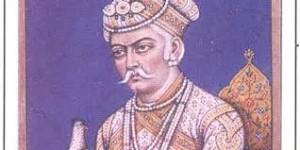
As an individual, Akbar always promoted and propagated an ethical way of living life. He was very progressive in his thought as it is evident from his views on child marriage. Akbar vehemently opposed the idea of child marriage and also opposed the social norm which prevented widows from getting remarried. He also despised the practice of Sati tradition and in this regard, he took strong legislative steps to put the practice of this tradition to an end.
You May Be Interested IN